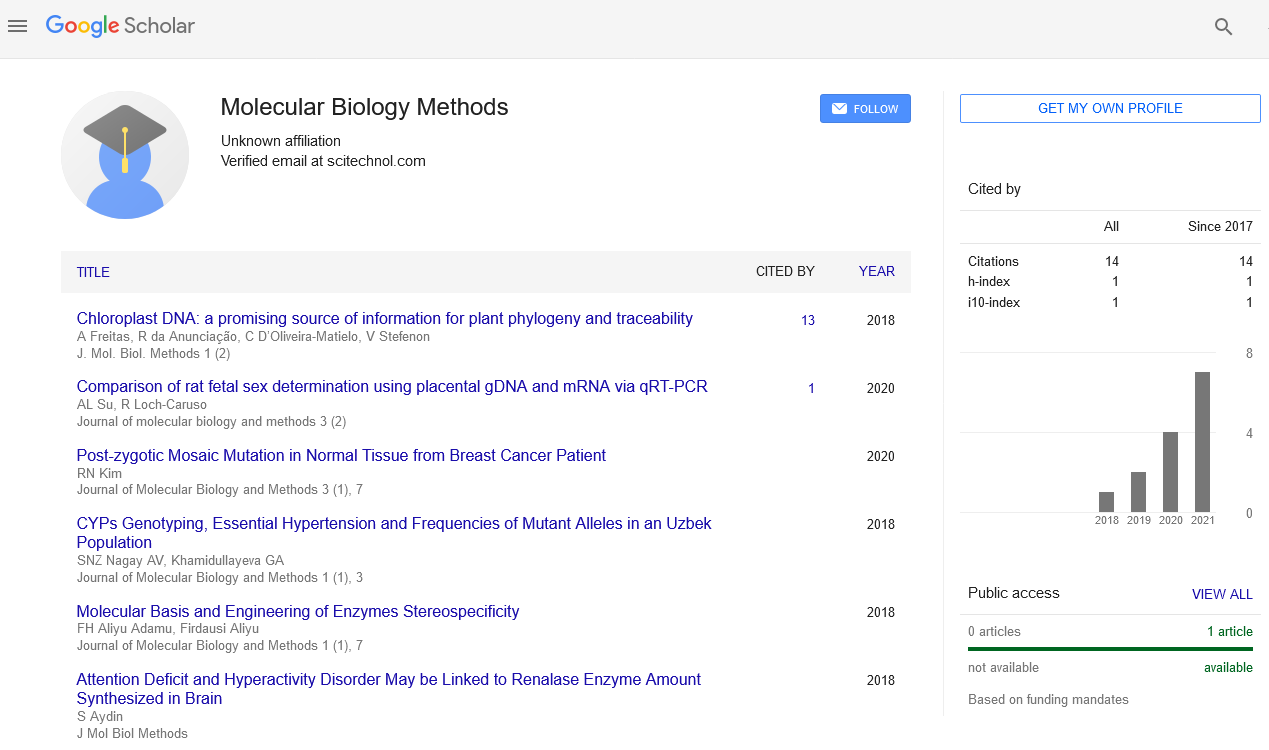Perspective, J Mol Biol Methods Vol: 6 Issue: 3
Examining the Functions and Significance of Microbiology
Bridick Rayn*
1Department of Microbiology, University of Paris-Est, Creteil, France
*Corresponding Author: Bridick Rayn,
Department of Microbiology, University of
Paris-Est, Creteil, France
E-mail: bridick_rayn@upe22.fr
Received date: 23 August, 2023, Manuscript No. JMBM-23-118068;
Editor assigned date: 25 August, 2023, PreQC No. JMBM-23-118068 (PQ);
Reviewed date: 08 September, 2023, QC No. JMBM-23-118068;
Revised date: 15 September, 2023, Manuscript No. JMBM-23-118068 (R);
Published date: 22 September, 2023, DOI: 10.4172/jmbm.1000146
Citation: Rayn B (2023) Examining the Functions and Significance of Microbiology. J Mol Biol Methods 6:3.
Description
Microbiology, the study of microorganisms, plays an important place in the world of science, and its applications extend far beyond the microscope. This branch of science is instrumental in understanding the intricate world of tiny organisms, uncovering their functions, and recognising their profound significance. Microorganisms, or microbes, are living entities that are too small to be seen with the naked eye. They come in various forms, including bacteria, viruses, fungi, archaea, and protists. While these minuscule organisms may be invisible to us, their impact is anything but inconsequential.
Microbes can be found almost everywhere on Earth, from the deep sea to the upper atmosphere, from the most extreme environments to the own bodies. The vast diversity of microorganisms presents a fascinating field of study, and understanding their functions is fundamental to various fields of science. Microbiology is instrumental in deciphering the fundamental life processes of these tiny organisms. This knowledge is not only vital for understanding microbial life but is also a foundation for comprehending more complex life forms.
Microbiology plays a pivotal role in medicine. It's essential in the study of infectious diseases, diagnostics, and the development of vaccines and antibiotics. Pathogenic microorganisms are responsible for a wide range of diseases, and microbiologists work to understand their modes of transmission, virulence, and treatment. Microbes are vital in environmental processes. They are responsible for the decomposition of organic matter, nutrient cycling, and even play a role in the production of oxygen through photosynthesis. Understanding these functions helps in environmental conservation and management.
Microbiology serves as a key component of biotechnology, enabling advancements in genetic engineering, biofuel production, and the production of genetically modified organisms with agricultural and industrial applications. It is vital in the food and beverage industry for processes like fermentation, preservation, and quality control. It ensures the safety and quality of the products one can consume.
Many pharmaceuticals are derived from or influenced by microorganisms. Antibiotics, such as penicillin, are a direct result of microbiological studies. Microbes have been harnessed to clean up environmental pollutants through bioremediation. They can break down and neutralise harmful substances.
Significance of microbiology
Microbiology's significance in healthcare cannot be overstated. The field has led to the development of vaccines that have saved countless lives, and it continues to provide insights into emerging diseases. Microbiologists monitor and investigate the ever-evolving world of pathogens, including viruses, bacteria and fungi.
In agriculture, microbiology has paved the way for innovations in crop yield, pest control, and soil management. Understanding the role of beneficial microbes in plant growth has led to sustainable farming practices. Microbiology's contribution to understanding ecosystem dynamics and the role of microorganisms in the environment is essential for maintaining the health of the planet. Microbes are involved in nutrient cycling and even play a role in combating pollution.
The biotechnology industry relies heavily on microbiology. Genetic modification, enzyme production, and the development of biofuels all stem from the understanding of microbial functions. Microbiology is used in a variety of industrial processes, from the production of enzymes and chemicals to the development of new materials and textiles.
The rapid identification and tracking of infectious agents, especially in the case of pandemics, are important in managing and reducing the impact of infectious diseases. As one can continue to explore the world of microorganisms, microbiology is poised to play an even greater role in shaping the world. With the rise of antimicrobial resistance, climate change, and the ever-present threat of new infectious diseases, the importance of microbiology in public health and studies cannot be overstated.
Conclusion
Microbiology is not just a branch of science; it's a gateway to understanding the smallest yet most influential organisms on the planet. From advancing medicine to contributing to environmental conservation and driving technological innovations, the functions and significance of microbiology continue to shape the world and hold the key to solving some of the most pressing challenges of the time. In an age of emerging infectious diseases and increasing environmental concerns, the role of microbiology remains as vital as ever.
 Spanish
Spanish  Chinese
Chinese  Russian
Russian  German
German  French
French  Japanese
Japanese  Portuguese
Portuguese  Hindi
Hindi 